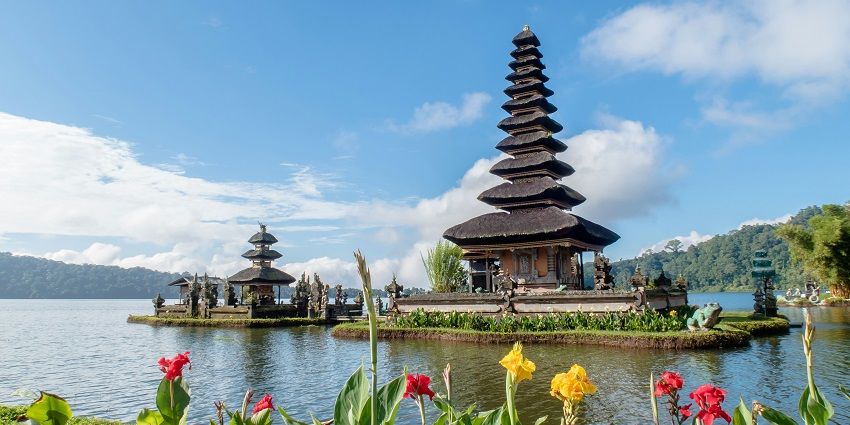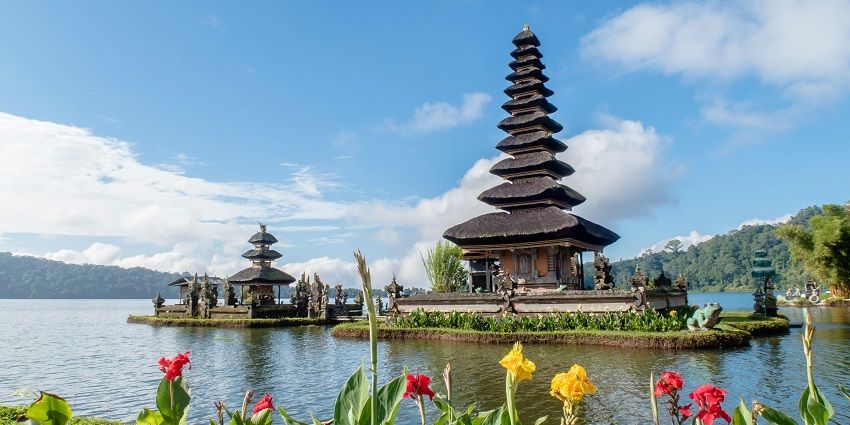Bali, an island in Indonesia, is one of the world’s most popular travel destinations. Known for its lush rice terraces, active volcanoes, spiritual temples, and coastal beauty, Bali attracts millions of international and domestic tourists each year. Whether you're planning a short holiday, a digital nomad stay, or an extended cultural exploration, Bali offers something for every type of traveler.
The concept of Bali travel extends beyond sightseeing. It encompasses the experience of Balinese traditions, cuisine, daily life, and religious practices. This travel guide aims to provide an educational overview of Bali, helping visitors make informed decisions, understand local norms, and plan efficient and respectful trips.

Why Bali travel matters today
In recent years, Bali has become more than just a vacation spot it plays a significant role in global tourism, remote working culture, and sustainable travel. As travel reopens globally post-pandemic, understanding Bali’s current environment is essential for safe and responsible tourism.
Bali travel matters for several key reasons:
-
Global appeal: Bali’s popularity has continued to grow, especially among digital nomads, families, and eco-conscious travelers.
-
Local economy: Tourism is a major source of income for the island. Educated travel choices directly support communities and local businesses.
-
Environmental impact: Over-tourism has raised concerns about sustainability, waste management, and environmental preservation.
-
Cultural preservation: Understanding and respecting Balinese customs helps preserve its unique heritage in a globalized world.
This guide is especially helpful for first-time visitors, returning travelers seeking updates, and those looking for responsible ways to explore Bali.
What’s new in Bali: 2024–2025 updates
Bali has undergone significant changes in the past year to better manage tourism and enhance the visitor experience. These are some of the most notable updates:
-
Bali Tourism Tax (Effective February 14, 2024): All international tourists are now required to pay an IDR 150,000 (approx. $10 USD) fee upon entry. The funds go toward environmental and cultural preservation.
-
Ban on Single-Use Plastics: Bali continues to enforce its ban on plastic bags, Styrofoam, and straws in an effort to reduce pollution.
-
Digital Nomad Visa Developments: Indonesia launched a “Second Home Visa” in 2023 for those staying over 5 years, but shorter-term remote work visas are still under consideration.
-
Better Transportation Options: Ride-hailing services like Gojek and Grab have expanded island-wide, making travel more accessible in remote areas.
-
Focus on Sustainable Tourism: New eco-resorts, reforestation programs, and waste reduction projects are becoming more common, especially in Ubud and the north.
Travelers should regularly check updates from Indonesia’s Ministry of Tourism and local consulates before arrival.
Laws, regulations, and cultural etiquette
Understanding local rules is essential for respectful and lawful travel in Bali. Here are some of the main policies and cultural guidelines travelers should know:
Government Policies and Regulations
| Area | Rule/Policy | Details |
|---|---|---|
| Entry Tax | Tourism Levy | IDR 150,000 per visitor, payable online or at airport |
| Visa | Tourist Visa on Arrival | Valid for 30 days, extendable once |
| Health | Vaccination | COVID-19 vaccination or PCR may be required |
| Environment | Plastic Ban | Single-use plastics prohibited in most areas |
| Conduct | Behavior in Temples | Modest dress required; no selfies near prayer activities |
-
Dress modestly, especially when visiting temples.
-
Always use your right hand to give or receive items.
-
Do not touch people’s heads, even children.
-
Avoid public displays of affection.
-
Participate quietly during religious ceremonies.
By respecting local customs and laws, travelers can avoid legal issues and contribute to positive cultural exchange.
Useful tools and resources for Bali travelers
Planning a trip to Bali is easier with the right tools. These digital platforms and resources can enhance your experience and help you stay organized:
Travel and Navigation
-
Google Maps – for directions and offline maps.
-
Gojek / Grab – ride-hailing and delivery services.
-
Rome2Rio – transport route comparisons between cities.
Accommodation and Planning
-
Booking.com / Agoda – for hotel and villa reservations.
-
Airbnb – alternative stays and long-term rentals.
-
Klook – for tours, transport bookings, and activities.
Language and Communication
-
Google Translate – helpful for Bahasa Indonesia phrases.
-
Duolingo – learn basic Bahasa Indonesia pre-travel.
Financial Tools
-
XE Currency – for live currency exchange rates.
-
Wise / Revolut – international money transfers with low fees.
Health & Safety
-
MySejahtera or PeduliLindungi App – may be required for health declarations.
-
Travel Insurance Providers – cover for health, cancellations, and accidents.
Frequently Asked Questions (FAQs)
Q1: When is the best time to visit Bali?
A: The dry season from April to October is the best time to visit. July and August are peak months with high tourist traffic. The wet season (November–March) is quieter and better for budget travelers.
Q2: Is Bali safe for solo travelers and families?
A: Yes, Bali is considered safe, but travelers should be cautious with traffic, avoid unlicensed taxis, and watch belongings in crowded places. Families often stay in Ubud or Sanur, which are calmer than party-focused areas like Kuta.
Q3: What currency is used in Bali, and how do I exchange money?
A: The official currency is the Indonesian Rupiah (IDR). It’s best to exchange money at reputable currency exchange offices or withdraw cash from ATMs. Avoid street exchangers with extremely high rates.
Q4: Do I need a visa to travel to Bali?
A: Many nationalities can obtain a Visa on Arrival (VoA) valid for 30 days, which can be extended once. Travelers should check the official immigration website for eligibility and updates.
Q5: Can I use my SIM card or should I buy a local one?
A: Buying a local SIM card (e.g., Telkomsel or XL Axiata) is recommended for better data rates and local access. SIM cards are available at the airport and convenience stores across the island.
Summary Table: Key Travel Insights
| Category | Recommendation |
|---|---|
| Best Travel Time | April–October (dry season) |
| Visa Requirements | 30-day Visa on Arrival |
| Daily Budget | $40–$100 per person (mid-range) |
| Local SIM | Telkomsel or XL Axiata |
| Transportation | Grab, Gojek, rental scooters |
| Must-Visit Regions | Ubud, Canggu, Seminyak, Nusa Penida |
| Cultural Note | Respect temple dress codes and ceremonies |
| Health Safety | Travel insurance highly recommended |
Final Thoughts
Bali remains a vibrant and rewarding destination for travelers from around the world. Whether you’re interested in wellness retreats, surfing, nature, culture, or food, the island offers diverse experiences with a warm local welcome. With new tourism policies, environmental regulations, and digital tools shaping the way people travel, it's more important than ever to be informed and respectful.
Use this guide to plan your journey with clarity and confidence enjoying Bali in a meaningful and sustainable way.

